What the threat against net neutrality means for PC gaming
What you need to know about the FCC's existing net neutrality protections, and why they're now in danger.
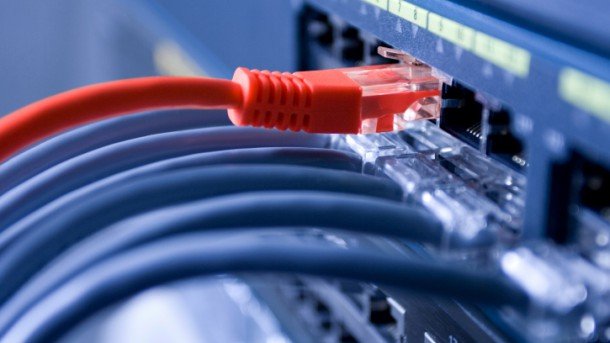
On April 26, the FCC announced a new plan to reverse the net neutrality rules it enacted under the leadership of Obama-era chairman Tom Wheeler. This rules proposal, which the FCC is calling "Restoring Internet Freedom," will change or remove the "common carrier" regulations the FCC enforced on Internet Service Providers, which were introduced in 2015. Those regulations put certain rules on what ISPs were allowed to do—the most common example is protecting us from internet "fast lanes," where conceivably an ISP like Comcast could throttle Netflix's bandwidth while promoting its own streaming service, or charge for "tiers" of internet access much like a cable package.
"Restoring Internet Freedom" is a catchy slogan. It's hard to argue against freedom, and the FCC can title its new rules proposal that because net neutrality is a pretty complicated issue. But there are two different interpretations of "freedom" at play here. Net neutrality's interpretation of freedom is meant to secure an open internet, where all data is treated equally, and it places regulations on ISPs to accomplish that goal. The new "Restoring Internet Freedom" proposal is about freeing those corporations from regulation, calling net neutrality protections "a massive and unprecedented shift in favor of government control of the internet."
So what does all that mean for PC gamers? Here's the deal. Revoking net neutrality isn't going to stop you from playing Battlefield, or prompt restrictive bandwidth caps overnight that make it harder to download games from Steam. In the short term, it likely won't affect your day-to-day gaming at all.
But net neutrality is still something you should care about. Our hobby is increasingly intertwined with the internet, and downloading games and watching streams is becoming a larger and larger chunk of global internet usage. The impact may not be immediate, but it's likely that any rule affecting net neutrality will eventually affect how you use the internet to play games or interact with the PC gaming community.
This isn't just an issue that activists care about. Even large interest companies like Google and Facebook support net neutrality legislation as the best path towards keeping the internet open, and the best way to prevent phone and cable companies from trampling all over their users. It's an important cause—we don't want internet providers controlling where or how we browse—but because net neutrality can refer to so many issues, it can be hard to know exactly how it affects our day-to-day use of the internet. Here's what you need to know about net neutrality, how it intersects with gaming, and what the FCC's proposes regulation changes will mean for the future.
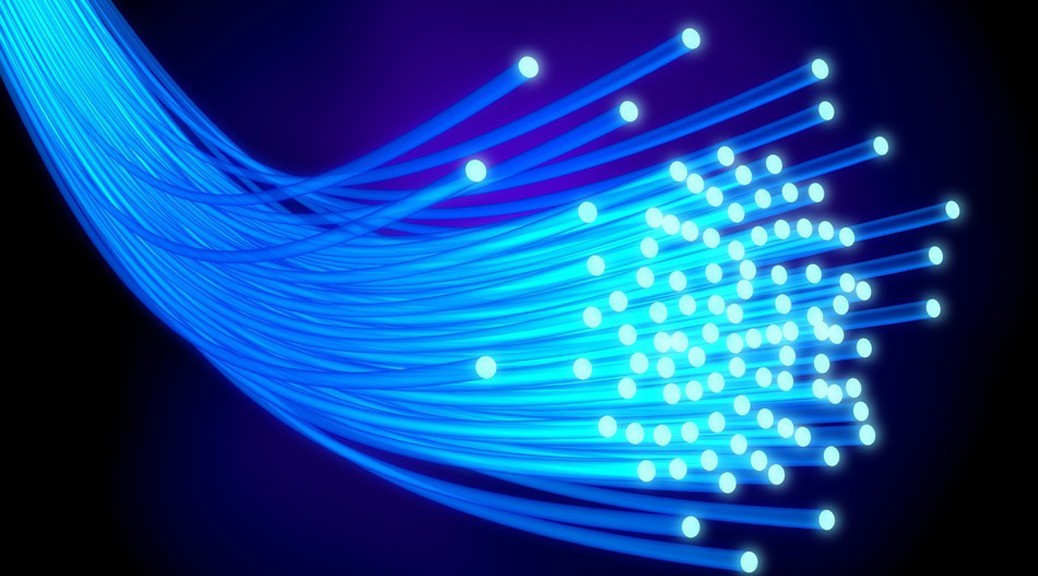
What "Title II" and "common carrier" regulations mean
In 2015, the FCC implemented new rules that regulated Internet Service Providers as "common carriers" under Title II of the Communications Act of 1934. The simple explanation is that ISPs were previously regulated as information services, but under Title II they're now considered telecommunications services. Why does that matter?
Because common carriers are regulated like utilities, and must operate in favor of the public good. The FCC enacted the "Protecting and Promoting the Open Internet" rules in 2015, applying some (but not all) of the Title II regulations to ISPs, writing "This is Title II tailored for the 21st Century. Unlike the application of Title II to incumbent wireline companies in the 20th Century, a swath of utility-style provisions (including tariffing) will not be applied."
The biggest gaming news, reviews and hardware deals
Keep up to date with the most important stories and the best deals, as picked by the PC Gamer team.
In other words, broadband providers can't discriminate, which means customers—and data—must be treated equally.
Here's the key line from the Title II rules that the FCC applied: They made it "unlawful for any common carrier to make any unjust or unreasonable discrimination in charges, practices, classifications, regulations, facilities, or services for or in connection with like communication service, directly or indirectly, by any means or device, or to make or give any undue or unreasonable preference or advantage to any particular person, class of persons, or locality, or to subject any particular person, class of persons, or locality to any undue or unreasonable prejudice or disadvantage."
In other words, broadband providers can't discriminate, which means customers—and data—must be treated equally. The common carrier rule also calls for networks to "establish physical connections with other carriers" when it's in the public interest, and that ISP practices must be "just and reasonable."
In addition, the 2015 order laid down several "bright-line" rules governing how ISPs must behave. Here are the big ones it prohibited.
No Blocking. Consumers who subscribe to a retail broadband internet access service must get what they have paid for—access to all (lawful) destinations on the internet.
No Throttling. A person engaged in the provision of broadband internet access service, insofar as such person is so engaged, shall not impair or degrade lawful internet traffic on the basis of internet content, application, or service, or use of a non-harmful device, subject to reasonable network management.
No Paid Prioritization. Paid prioritization occurs when a broadband provider accepts payment (monetary or otherwise) to manage its network in a way that benefits particular content, applications, services, or devices. To protect against “fast lanes,” this Order adopts a rule that establishes that: A person engaged in the provision of broadband internet access service, insofar as such person is so engaged, shall not engage in paid prioritization.
Those all sound pretty great, right? It's easy to see how these rules could intersect with gaming or other activities we enjoy using our internet connections for. "No blocking" rules would protect us from a possible spat between Comcast and Time Warner, competing cable services that own HBO and NBC, respectively. Imagine if you could only watch content from one of those sources if you had the appropriate internet provider? Imagine Comcast looked at the 410 gigabits of data that Steam users in the US alone are gobbling up per second and decided to throttle that? What if Amazon became an ISP and decided you could stream Twitch video at 4K for free, but you had to pay an extra $5 a month for 4K streaming from other services?
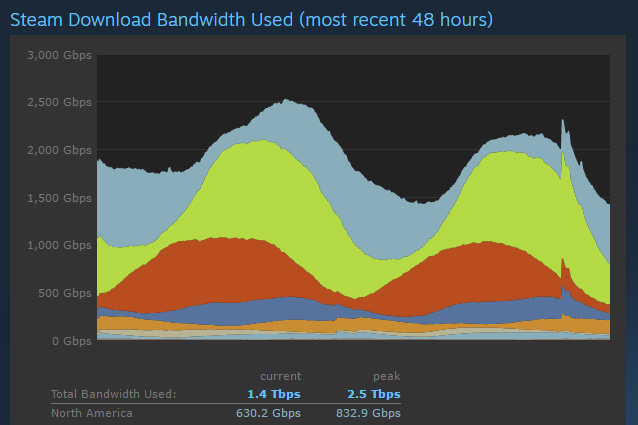
There are, of course, arguments against these regulations. One of the simplest is that the rules are paranoid, adding unnecessary governmental red tape just to guard against potential issues. This is actually the stance of new FCC chairman Ajit Pai, who said on April 26:
"What was the problem that Title II was supposed to address? We were warned that without it, the internet would suddenly devolve into a digital dystopia of fast lanes and slow lanes…Did these fast lanes and slow lanes exist? No. The truth of the matter is that we decided to abandon successful policies solely because of hypothetical harms and hysterical prophecies of doom. It’s almost as if the special interests pushing Title II weren’t trying to solve a real problem but instead looking for an excuse to achieve their longstanding goal of forcing the internet under the federal government’s control."
Pai is technically correct that we weren't living in a dystopic, fast lane/slow lane world. But this is still an incredibly disingenuous statement for the chairman of the FCC to make, because he should know better than anyone that ISPs have implemented anti-consumer policies in the past that violate some of these rules.
Zero rating, where carriers favor services they provide by excluding them from bandwidth caps, is a step towards internet fast lanes. AT&T called data plans "unlimited" but began throttling customers after an unspecified amount of data usage. Imagine being in the middle of an Overwatch match when suddenly your bandwidth slows to a crawl and your ping skyrockets. Comcast once secretly blocked access to peer-to-peer services like Bittorrent.
Oh, and there was that time that a Verizon lawyer literally said the company would be pursuing tiered internet plans if it weren't for FCC regulations.
None of those actions are in the common good, and the FCC's 2015 regulations are meant to protect consumers against them. Pai seems perfectly content with ignoring all of these issues to justify tearing down these net neutrality protections.
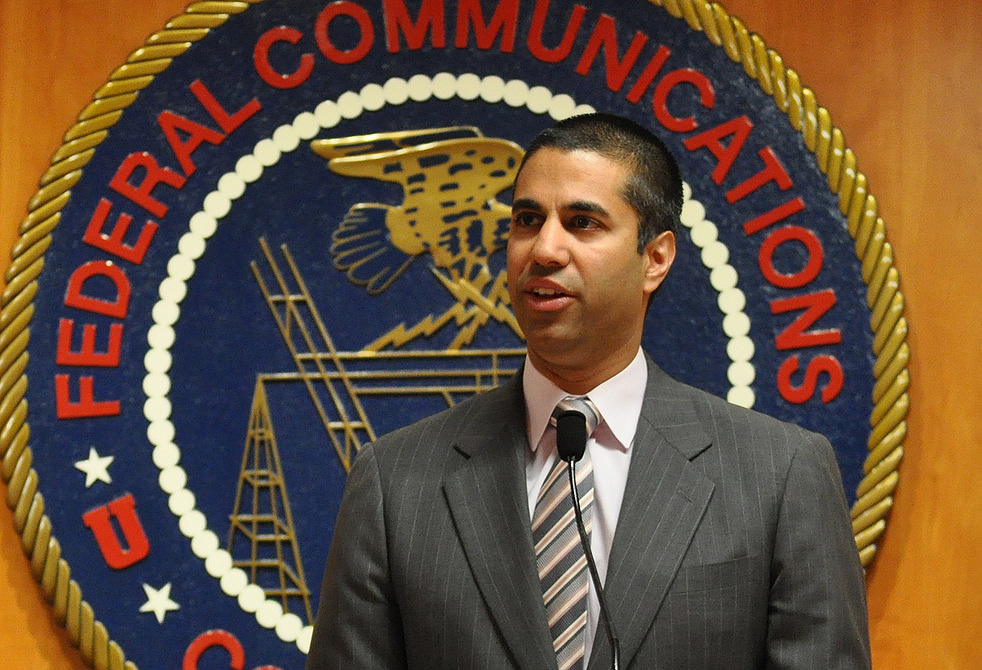
What happens with net neutrality now?
Under Pai's leadership, net neutrality is besieged. While a big chunk of the 2015 rules we linked above are dedicated to clarifying how common carrier restrictions apply to modern ISPs, they also have broader "open internet" protections affecting privacy and other issues. That's why "neutrality" broadly refers to keeping the internet and even field for everyone, and it's why issues like internet data caps are often rolled into the fight for net neutrality. Our understanding of how best to keep the internet open and free, and what kinds of protections consumers need, is evolving with the internet.
Rather than a doomsday scenario, the most likely effect of rolled-back net neutrality protections on gaming is more data caps, or higher prices as services like Steam or Netflix or Twitch are charged by ISPs for the amount of bandwidth they consume. And data caps really matter. Many of today's games gobble up 50 gigabytes for a single download, before DLC or online multiplayer. If you live in a household with two or three avid gamers, who also stream movies and TV, it's easy to blow past Comcast's terabyte data cap. And without net neutrality protections, you have to really believe in the inherent goodness of capitalism to assume things will just get better for consumers. In most parts of the US, there isn't enough competition to ensure ISPs are keeping prices down and quality service up.
It's obvious that ISPs are eager to see the common carrier rules rolled back, and the big names have already praised Pai's proposal. Major tech companies, on the other hand, are still strongly supporting net neutrality. After meeting with chairman Pai on April 11, the Internet Association, which includes Google, Facebook, Amazon, Microsoft, Netflix, Reddit, and many more, wrote "IA continues its vigorous support of the FCC’s OI Order, which is a vital component of the free and open internet. The internet industry is uniform in its belief that net neutrality preserves the consumer experience, competition, and innovation online. In other words, existing net neutrality rules should be enforced and kept intact."
Pai's entire speech titled "The future of internet freedom" makes a passionate case for the poor, beleaguered state of the over-regulated internet, claiming there's been "reduced investment" in internet infrastructure, cost the US between 75,000 and 100,000 jobs, and prevented the FTC from protecting our privacy online. He also called the common carrier classification a "sudden change" from the government's previous history of regulation.
The problem is, it's all bullshit.
Pai tries to use the internet's growth from 1996, when light regulations were enacted, as proof that those regulations were responsible for that growth. Nevermind the truly massive confluence of technical development that occurred in the late 90s to make the internet a thing, right? Of course there was a ton of growth, because before that there was basically nothing.
Pai's entire speech titled "The future of internet freedom" makes a passionate case for the beleaguered state of the over-regulated internet. The problem is, it's all bullshit.
And the truth is that the FCC has, multiple times over the past 20 years, classified the internet as a common carrier. Early dial-up and DSL fell under Title II. That only changed when cable companies started providing internet access, and DSL was eventually re-classified as an information service to even the playing field. And then the FCC enacted the Open Internet Order in 2010, which essentially held ISPs up to the standards of common carriers without technically classifying them as common carriers. Pai and ISPs argue that those rules were better than the more comprehensive rules enacted in 2015.
Surprise: No, they weren't! Those rules didn't hold up in court when Verizon sued the FCC, and the court ruled that the FCC couldn't enforce the Open Internet Order because it wasn't officially classifying ISPs as common carriers. Big surprise that big telecom companies want to go back to that era of internet regulation. The rules would still offer the illusion of consumer protections, but ISPs could still walk all over the FCC (and, by extension, us) in court.
What about the investment Pai mentioned? "Among our nation’s 12 largest Internet service providers, domestic broadband capital expenditures decreased by 5.6% percent, or $3.6 billion, between 2014 and 2016," he claimed. Well, it turns out that Comcast spent more money on its networks, AT&T spent more, Verizon spent more, and Charter spent more. Where'd Pai get his numbers? Lobbyists. Cool.
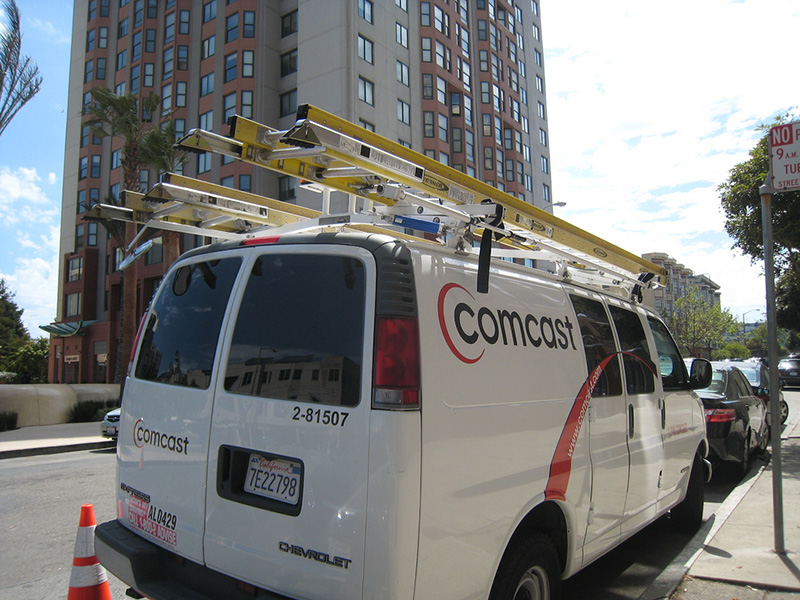
And what about those jobs we supposedly lost? It looks like Comcast's communications division has grown between 2014 and 2016 and AT&T has increased its hiring rates significantly. Pai's numbers were simply extrapolated from a claimed $5.1 billion in lost network investment, which, again seems to be pulled from thin air and ignores the increased expenditures from the country's biggest telecoms.
Meanwhile, here's a letter from 800 startups and other businesses petitioning Pai to preserve net neutrality.
Pai even blamed the FCC's 2015 rules for "[stripping] the Federal Trade Commission of its authority to regulate broadband providers’ privacy and data security practices." But as Ars Technica points out, the FTC's reach only allows it to enforce the privacy promises companies make to users; the FCC's policies, by contrast, were meant to offer rules governing standards for privacy ISPs would have to live up to. The FCC proposed and detailed a more comprehensive privacy policy. Remember those? Congress killed them in March.
Ajit Pai will sell you a bridge made of snake oil to justify killing off net neutrality, and he'll call it freedom. The details of the FCC's newly proposed rules are publicly available here, and here's a quick walkthrough of how to leave a comment about the proposal on the FCC's website. On May 18 the commission will likely vote to consider these rules, and accept several months of comments while it reviews the rules through this summer. Leaving a comment or calling your congressional representative is the best way to fight for net neutrality.
Expect to see it come up more than a few times between now and the fall, when the FCC will potentially vote to put this proposal into effect.

Wes has been covering games and hardware for more than 10 years, first at tech sites like The Wirecutter and Tested before joining the PC Gamer team in 2014. Wes plays a little bit of everything, but he'll always jump at the chance to cover emulation and Japanese games.
When he's not obsessively optimizing and re-optimizing a tangle of conveyor belts in Satisfactory (it's really becoming a problem), he's probably playing a 20-year-old Final Fantasy or some opaque ASCII roguelike. With a focus on writing and editing features, he seeks out personal stories and in-depth histories from the corners of PC gaming and its niche communities. 50% pizza by volume (deep dish, to be specific).

